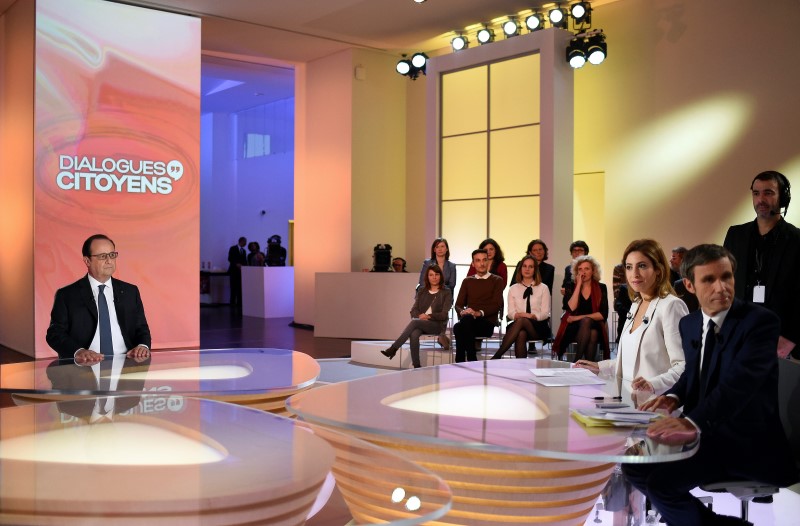PARIS (Reuters) - President Francois Hollande's efforts to win over French voters on prime-time TV on Thursday generated few newspaper headlines, criticism on social networks, and a million fewer viewers than a long-running crime serial on a rival channel.
The audience of 3.5 million, in a nation of 65 million famed for its high level of political engagement, paled next to the eight million who watched a similar Hollande appearance in the same evening spot in late 2014.
The Socialist leader, plagued by rock-bottom popularity and an unfulfilled promise to reduce a jobless rate of more than 10 percent, fielded questions in a lengthy appearance billed by local media as important to his chances of re-election in 2017.
Hollande, whose bottom line was that things are improving in the country, said he would decide at the end of the year whether to seek a second five-year mandate in an election set to take place in May 2017.
Perhaps partly because of the lateness of the show, major national dailies opted for front-page stories on other matters such as Britain's referendum on leaving the European Union (Le Figaro), Jihadi uprisings (Liberation) and how to cure back pain (Le Parisien).
"Despite it all, he still believes in it," read one of the few newspapers to give Hollande space on its front-page, Ouest France, the country's biggest regional daily.
The president, heading into his last of five years in power, made no new policy announcements in the show where he faced questions from a pre-selected panel of voters as well as journalists.
The performance called "Citizen dialogue" came on a day when one opinion survey by Elabe showed a massive 87 percent held a negative view of Hollande's term so far and another poll, by Odoxa, showed three in four people do not want to see him seek re-election.
On social networks, reactions varied from supportive tweets from members of his government to negative swipes from political opponents and other detractors.

There were also jokes about being more interested in skirmishes between police and a youth protest movement called Nuit Debout (Up all night).